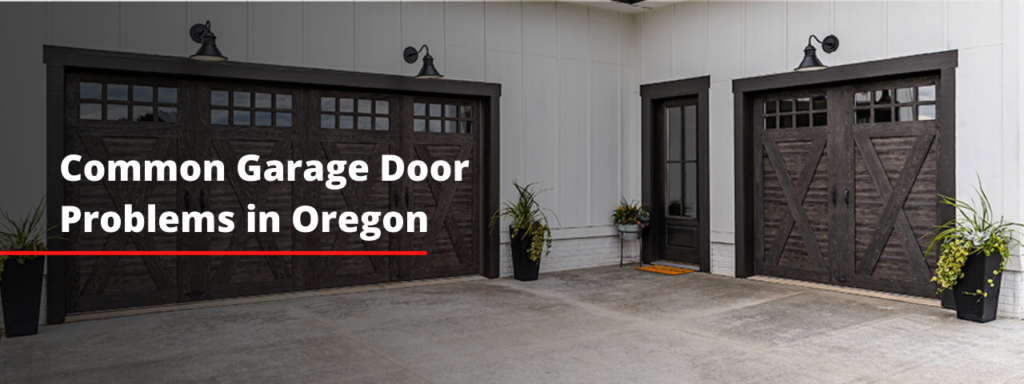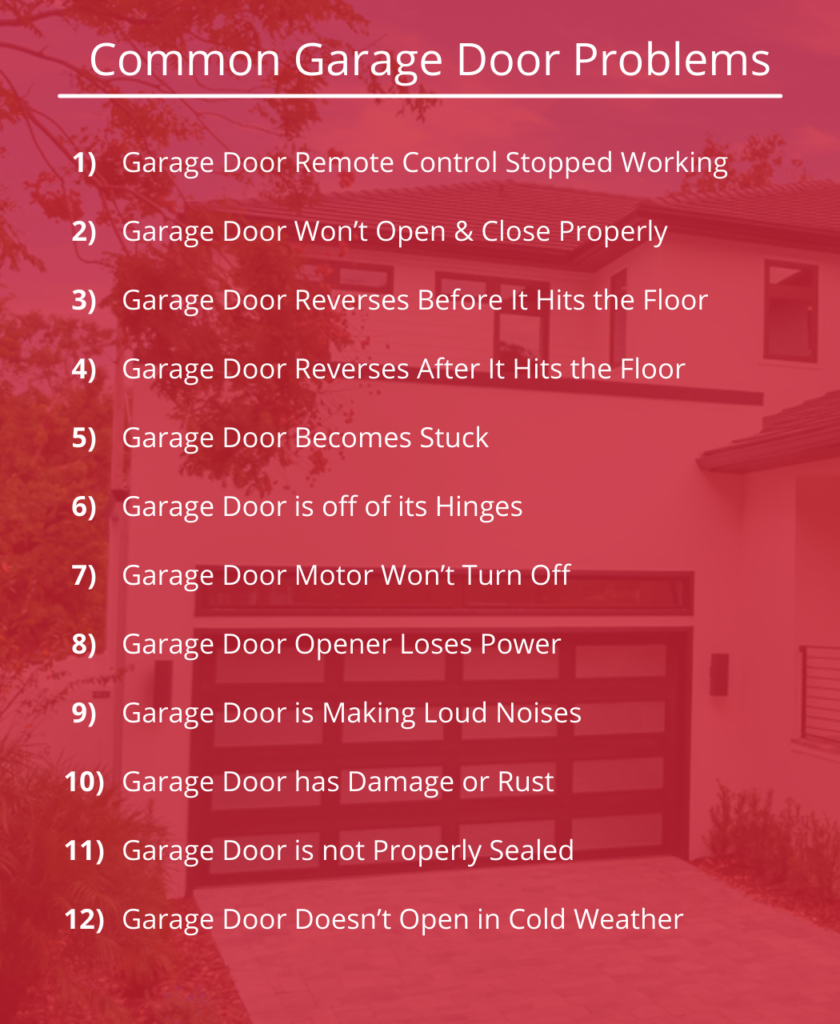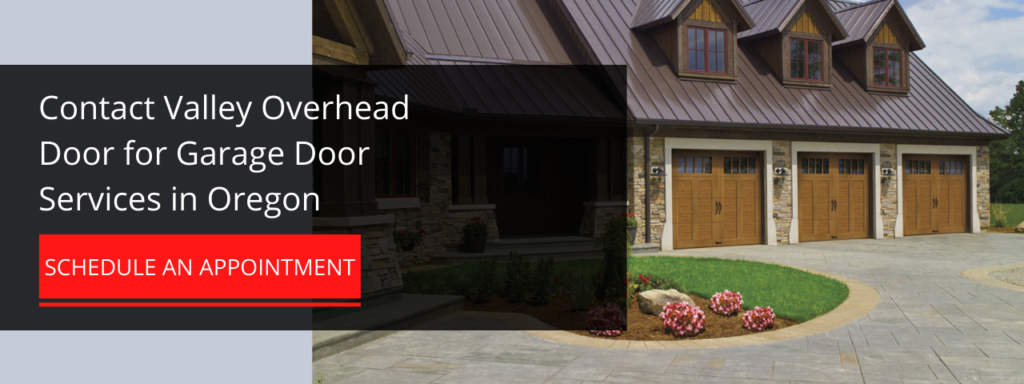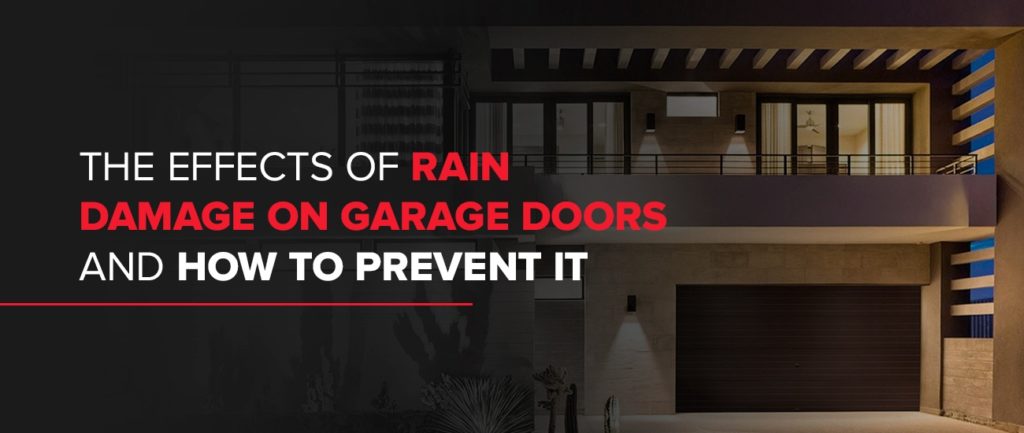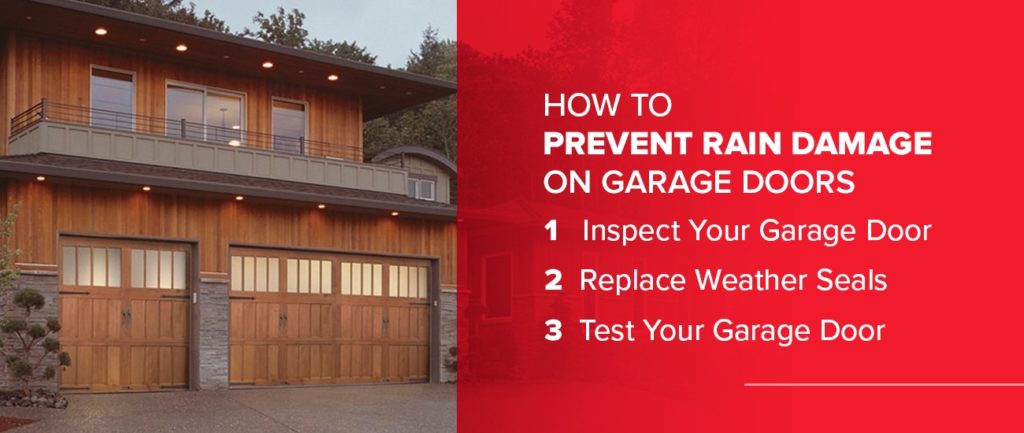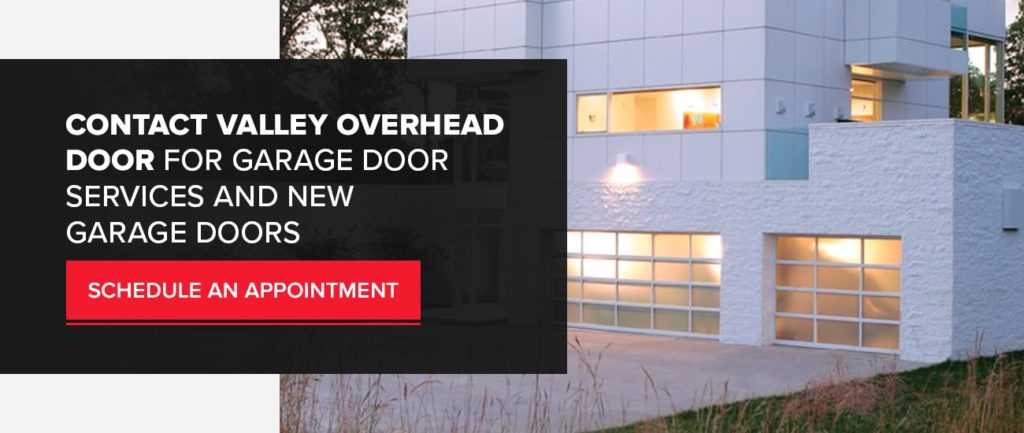Common Garage Door Problems in Oregon
Jump To:
- 1. Garage Door Remote Control Stopped Working
- 2. Garage Door Won’t Open & Close Properly
- 3. Garage Door Reverses Before It Hits the Floor
- 4. Garage Door Reverses After It Hits the Floor
- 5. Garage Door Becomes Stuck
- 6. Garage Door is off of its Hinges
- 7. Garage Door Motor Won’t Turn Off
- 8. Garage Door Opener Won’t Work Because Your Home Lost Power
- 9. Garage Door Makes Loud Noise When Opening & Closing
- 10. Garage Door has Damage or Rust
- 11. Garage Door is not Properly Sealed
- 12. Garage Door Doesn’t Open in Cold Weather
- Professional Garage Door Repair in Oregon
Homeowners in Oregon rely on their garage door and garage door openers to work correctly. Whether it is raining or snowing, it is pivotal that your garage door opens up and closes when you need it most. However, garage doors occasionally run into problems, such as the remote not working, the door not opening, or the door getting stuck.
Valley Overhead Door understands your frustration when dealing with garage door problems! Read our guide outlining the most common garage door problems that homeowners in Oregon experience. For a severe garage door problem, submit a request for service or call us directly!
1. Garage Door Remote Control Stopped Working
Whether your garage door remote won’t open as prompted or won’t operate consistently, it is best for garage door owners to understand why garage door remotes malfunction. If your garage door remote is not working properly, it is due to on of the following reasons:
- Remote batteries are low or dead
- Remote signal is disrupted
- Lock button on the wall-mounted control is engaged
- Remote needs reprogramming
- Door control’s wiring is malfunctioning
- Ground fault interpreter (GFI) is blown
If you are experiencing an issue with your garage door remote, please get in touch with us today to schedule an appointment for one of our experienced technicians to come out and diagnose the issue!
2. Garage Door Won’t Open & Close Properly
In some cases, garage doors will not open and close properly. You may notice that the garage door wheel, also known as a roller, is not on the track. It is also possible that you will attempt to open the door and it stops halfway through, or you open the door without an issue but experience trouble as it closes, or vice versa. In any case, one of three things is likely occurring.
- Limits are off
- Rollers are Damaged
- Photo-Eyes are faulty
If your limits are off or your photo-eye sensor is faulty, you can start by looking for guidance in the garage door opener manual. Usually, both the garage door limits and the photo-eye sensor are adjustable. In the case that your rollers are damaged, it is best to contact us immediately to inspect the issue and repair it accordingly!
3. Garage Door Reverses Before It Hits the Floor
Two possible problems can cause a garage door to reverse before it touches the floor:
First, the garage door openers have an adjustment screw that controls closing force, and the close-force setting needs to be adjusted. The friction of the door rollers within the tracks is causing the door opener to incorrectly thinking the door reached the floor. Adjusting the sensitivity will solve this problem.
Second, there is damage to the rollers. Damage or rust to the rollers causes friction while the door is closing, causing the opener to stop before it hits the floor. Inspect your rollers and ensure they are well lubricated to solve this problem.
4. Garage Door Reverses After It Hits the Floor
If you close your garage door and it reverses right after it hits the floor, then you have an issue with your close-limit switch. You can prevent this from happening by adjusting the close-limit screw on the door opener motor. Adjust the close-limit screw in small increments until the door stops when it touches the floor.
5. Garage Door Becomes Stuck
One of the most frustrating problems that happen with garage doors is when the door becomes stuck. When a door is stuck, it is usually caused by something in the opening machinery going bad. The chain could be off the track, the machine could need lubricant, or the power supply could be out. If you have trouble identifying why your garage door is stuck, call a professional to help identify the issue and repair the garage door.
6. Garage Door is off of its Hinges
Garage doors move off their hinge when the horizontal tracks become misaligned. Tracks become misaligned when the bolts on the bracket holding the tracks become loose or unscrewed completely. If the garage door has fallen onto the floor, it would be best to call a professional immediately. If the garage door is still on the track, close the garage door and tighten the bolts that hold the bracket in place. After tightening the bolts, ensure that everything is parallel.
7. Garage Door Motor Won’t Turn Off
Your garage door motor staying on is an unusual problem, but it does occur at times. If the motor won’t turn off, it means that the up-limit switch is too close to your motor unit. Move the up-limit switch away from the motor unit, and your garage door motor will turn off.
8. Garage Door Opener Won’t Work Because Your Home Lost Power
In the case that your home loses power completely, you can open the garage door manually. Start by pulling the emergency cord on your garage door opener to deactivate the motor. You can then proceed to open the garage door!
9. Garage Door Makes Loud Noise When Opening & Closing
Have you recently opened or closed your garage door and heard a loud, squeaky, or grinding noise? The problem is most likely being caused by your door’s rollers. In order to stop loud or squeaky noises being made by your garage door, regularly lubricate all the moving parts of the door.
Clopay Pro Lube Synthetic Garage Door Lubricant is a great option to lubricate your loud garage door! You can find Clopay’s Garage Door Lubricant at your local Home Depot.
10. Garage Door has Damage or Rust
Garage door owners in Oregon know that their garage door can take a beating during the different seasons of the year. Whether it is wind, rain, hail, or snow, garage doors in Oregon take severe abuse. Visible trauma to a garage door can be fixed if addressed promptly!
Dents are the most common garage door damage. Residents in Oregon also have to consider rust depending on the material of their door. Whether it is dents or rust, it is best to address the damage as soon as possible to avoid the damage from escalating and ruining your garage door.
11. Garage Door is not Properly Sealed
The garage door seal is pivotal for keeping out water and improving the insulation of the garage and your home. However, many people do not check their seal until it is too late. Garage door seals need to be replaced as seals become old and less pliable.
You can check your current garage door seal by trying the following:
- Close your garage door and check for light peaking through between the bottom of the door and the floor.
- Take water, splash it against the base of your garage door, and then check the inside of the garage to determine if the water came through the seal.
- Search for a draft coming through the bottom of the garage door by holding a piece of paper or cloth to the bottom of the garage door and seeing if it moves from a draft coming from under the door.
- Visually review the garage door to determine if the garage door has warped or if the seal is discolored.
If you determine that your seal is not working correctly, you are in luck! It is relatively easy to replace your garage door seal. Remove the old seal first and then tack the new seal to the bottom of the garage door.
12. Garage Door Doesn’t Open in Cold Weather
As the temperature drops, your garage door may stop working. Whether it is a cold morning or the middle of winter, you rely on your garage door to work. Several problems can cause your garage door to stop working in the cold.
- Hardened grease
- Lack of grease
- Metal contracts and seizes springs, hinges and rollers
- Misaligned or warped tracks
- Broken spring
- Frozen seal
The best way to prevent garage door problems in the winter is to perform preventative maintenance on your garage door system! This includes applying solvent to rollers, hinges, and tracks, lubricating pulleys, keeping your system clean, and ensuring that all of your screws and bolts are tight. Maintaining your garage door prior to the winter will ensure that your garage door works even while the temperature drops.
Professional Garage Door Repair in Oregon
When your garage door is running correctly, you are most likely not spending too much time thinking about it. However, as soon as it breaks, you will know it. Garage door issues can stem from several different factors, but it is bound to easily disrupt your ability to enter and exit your home.
If you live near Albany, Salem, or Corvallis, Oregon, and are looking to repair your garage door, look no further! Valley Overhead Door serves the Willamette Valley and has over 20 years of experience repairing garage doors. We can identify and fix any problem your garage door is experiencing and get your garage back to normal in no time.
Request a Service Estimate Today
If you require any repair services, Valley Overhead Door is happy to assist. Submit a request for service, or give us a call, and we’ll get started right away!
The Effects of Rain Damage on Garage Doors and How to Prevent It
Jump To:
- Can Rain Damage Garage Doors?
- How Does Water Affect My Garage Door?
- How to Prevent Rain Damage on Garage Doors
- How to Protect Garage Doors From Flooding
If you’re an Oregon resident, you are all too familiar with rainy days and torrential downpours. In the same way you keep your umbrella and rain boots handy, you can take measures to shield your garage door from the weather. Protecting your garage door from the elements is essential because rain has the potential to cause severe water damage.
This article will cover the effects of rain damage on garage doors, the tips you need to prevent rain damage on garage doors in Oregon and who to contact to repair rain damage on garage doors in Oregon. Keep reading to ensure your garage door stays in pristine condition this rainy season.
Can Rain Damage Garage Doors?
Anyone who lives in Oregon knows rain is a regular part of life. Unfortunately, rain and your garage door typically do not mix well. Too much rain can result in water damage, leaking and flooding, which can also harm your garage’s interior and its contents.
In particular, rain can cause considerable damage to your garage door if you have a wood door. Increased moisture can make the frame surrounding a wooden garage door swell, decreasing the clearance between the frame and the door. When the distance between a garage door and its frame closes, the door can begin to rub against the frame and potentially become stuck in place.
Rain can also cause other sorts of water damage to wooden garage doors, such as warping their panels or causing the wood to rot. Excessive rain can also affect metal doors. After extended exposure to rainwater, metal garage doors will start to rust and deteriorate. The hinges and other metal components of a wooden garage door are also prone to rust.
How Does Water Affect My Garage Door?
If you have a wooden garage door, rainwater can affect it in a few specific ways. Being aware of these issues can help you spot them before they escalate. After extensive periods of rain, make sure you check your garage door for signs of damage and maintenance needs.
Learn to recognize these main three effects of rain damage on garage doors.
- Increased weight: When wooden garage doors soak up rainwater and get damaged by wear, they become increasingly heavier than they were at their initial installation. This excess weight puts a strain on your garage door opener, which may damage the system. Pay attention to whether your garage door seems to be creaking and struggling more to open.
- Freezing: If the temperature drops below freezing, any rainwater that collects between the rubber seals of your wooden garage door and the floor may freeze. When this occurs, the garage door can freeze shut, preventing you from opening your garage door until the ice melts. Even once the ice melts, watch out for any water collecting underneath your garage door, which may cause further damage.
- Warp: Warped panels are one of the primary issues rainwater causes in wooden garage doors because they impact the door’s ability to function. Once one panel warps or changes size, the other panels no longer align, which throws off the entire door’s operation. A warped garage door will not open and close correctly, making it a safety hazard. If you notice your garage door beginning to buckle, it most likely has become warped.
How to Prevent Rain Damage on Garage Doors
You may not be able to avoid rainwater, but you can take specific steps to protect your garage door from water damage. Follow these steps for preparing garage doors for the rainy season.
1. Inspect Your Garage Door
Begin by checking your garage door for possible issues, such as holes, dents, cracks and warping. Repairing any problems that you notice with your garage door while inspecting it will help you avoid more significant issues due to rain damage.
Be sure to pay special attention to these three components.
- Appearance: Visually inspect your garage door to locate any cracks or dents you may need to fix.
- Seals: Ensure the seals are tight and there are no gaps between the door and the ground where rainwater could get in.
- Operation: If your garage door is not functioning smoothly and quietly, there may be more extensive issues to address.
2. Replace Weather Seals
The weather seals create a tight seal between the bottom of your garage door and the ground, which helps prevent minor flooding and rainwater damage. However, repeated use and friction can degrade the weather seals over time. If you notice any rips, cracks or failing adhesives on your garage door, contact a local expert to receive the correct replacement parts.
3. Test Your Garage Door
In times of extreme rain, perform a quick safety test to make sure your garage door is operating correctly despite the storms. These safety tests will check that your garage door’s safety features are still working, which will help you and your family avoid any potentially dangerous situations.
Regularly test these two safety features.
- Automatic reverse feature: Your garage door’s ability to automatically reverse after sensing an object in its path is a crucial safety measure. Test that this feature is still working by placing something solid, such as a piece of wood, in the door’s closing path before closing the garage door. The door should reverse once it reaches the item.
- Photo-eye sensors: To function properly, your garage door’s photo-eye sensors need to be in alignment. To test this, look for the light on one of the devices indicating it’s in line with the other sensor. Then, close the garage door and move a broom or similar object through the sensors’ sightline. If the sensors are working, the garage door should begin reversing.
How to Protect Garage Doors From Flooding
Some garage doors may be more susceptible to increased water flow because of the house’s orientation, which can lead to flooding. Fortunately, there are a few ways you can protect your garage door from flooding in times of extreme rain.
- Install drainage: You can significantly lower the chances of flooding by installing a trench drain. Create a trench in front of your garage to divert rainwater by cutting a channel from one side of the driveway to the other, then laying a U-shaped steel or PVC pipe and covering it with a steel grate. This drain will redirect rainwater into your main sewer line before it can build up in your garage.
- Install a threshold seal: This weather seal is a thick rubber strip that attaches to the garage floor instead of the garage door itself. A threshold seal can effectively keep water from flowing into your garage, but you may still need a drain to sweep the water away.
- Invest in a new garage door: The most reliable way to prepare your garage door for the rainy season is to get a new garage door that rates well for withstanding extreme weather and flooding.
Contact Valley Overhead Door for Garage Door Services and New Garage Doors
Valley Overhead Door knows how to prepare garage doors for the rainy season in Oregon. With more than 20 years of experience serving members of the Albany, Ore., community and surrounding areas, we have the necessary expertise to protect your garage door from rainwater and flooding. We offer friendly, professional service to repair rain damage on your garage door or install a new one.
To learn more about how to keep your garage door safe from water damage or schedule a service appointment, contact Valley Overhead Door today.

